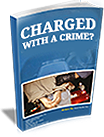What Are Some Mistakes People Make After Being Arrested?
This is a great question. One of the biggest areas people have these questions about is the standardized field sobriety tests, which are given by officers around the United States. This was adopted by the National Highway Transportation Safety Authority and they adopted certain types of tests which, while not scientifically conclusive, do give a certain degree of certainty within a certain probability of being indicative of someone being under the influence.
For example, in the famous walk-and-turn test, the person would have to walk nine steps heel-to-toe, turn around, spin around and walk back to the officer. Many people have a very difficult time keeping their balance, so someone with a bad back or who was overweight or wearing high heels or had bad knees, may not be able to do that to the satisfaction of the officer.
Someone who was overweight would probably have trouble doing most of these standardized field sobriety tests, which is something that people should keep in mind. Someone with a bad knee would have a hard time standing up on one leg and doing the one-legged stand. Someone with ADD, dyslexia or an anxiety issue, which includes a very large part of the population to some degree, may become very anxious and not be able to recite the alphabet.
A person with a bad back or some sort of other issue which could affect their performance, should verbalize that to the officer because if they did not inform the officer about it at that time, then it would not help them when they came back three months or six months later and said they could not do a certain field sobriety test because they have a bad knee or their back is no good or they cannot stand up straight no matter what or they cannot balance anyway even if they were stone cold sober.
The point of the standardized field sobriety tests is for the officer to determine whether or not there was a basis to administer the breath tests. Once they administer the breath tests and the person ends up scoring above a 0.08, then if they had not told the officer they had a bad knee, vertigo or whatever else might cause an issue, the officer would have already administered the tests. It would be very hard for an attorney to go back in the court afterwards and say the person suffered from ADHD and could not recite the alphabet at all or they could not recite the alphabet from C to Z. This is an issue that people very often forget to bring up and it tends to become a very big issue later.
What Have You Learned About People’s Behavior And Their Reactions Once They Are Arrested And Prosecuted For A DWI/DUI?
Obviously, there is often either a feeling of stress and embarrassment but there is very often almost a sense of it being a foregone conclusion that their license was now completely different or had changed. This would be true to some extent for everything that happens to us in life with regards to how it shapes and forms us and becomes part of how we go forward in life because a DWI would not necessarily have to change the person’s life as a whole, other than for the better.
The other thing is that people very often become very nervous when they are first arrested. While this is absolutely understandable, it is important that they remember to some extent that although this is a stressful situation it would be one in which they would have to keep their head, because if they allowed themselves to get overwhelmed with what was happening, they might make mistakes that might end up being very costly later on.
What Does “Implied Consent” Mean?
One of the biggest mistakes people make is regarding what is known in New Jersey as the “Consent agreement,” which basically means that the person had given consent when they got their driver’s license and signed a little form.
When someone gets a driver’s license, there is a little box somewhere in all the forms they are filling out that is for the implied consent law which essentially means that in return for getting a driver’s license in the State of New Jersey or driving at all in the State of New Jersey, they would thereby agree and give consent to the submission and carrying out of a breath test by a police officer should they have probable cause.
“Probable cause” is really not that difficult to prove, because the smell of alcohol on someone’s breath, their failure to be able to complete field sobriety tests, or if they refused to submit to a breath test would all be considered as probable cause. Other penalties would come with that because it would be an issue in and of itself.
How Public Would The Situation Be For Typical People And Who Would Find Out?
This would be a matter of public record in New Jersey. Most places, specifically in New Jersey, have something called the “Automated traffic system”, meaning that everything in New Jersey, any charge a police officer wrote, whether a traffic violation or a criminal charge would become public record within a very short time of the charge being filed because that is part of our hope and our attempt at being able to keep things transparent.
Considering it is not a crime, it would be very unusual especially in New Jersey, for anybody to go out and publicize this. The information may be out there but someone would have to go and look for it because unless the accused was somebody of note, a celebrity, a public office holder or something along those lines, it would be unusual for it to be publicized. This does not usually happen, although what does usually happen is that the person would have to go into their local municipal court to deal with this because that is where these issues are handled.
They would be around the place where they lived so they would be there along with all of their neighbors and friends who had gotten citations for speeding, an improper U-turn or talking on the cellphone, which can sometimes become an issue. I would not say the person should die of humiliation or go hide in shame, but it is something to bear in mind.
For more information on Common Mistakes After Being Arrested, a free initial consultation is your next best step. Get the information and legal answers you’re seeking by calling
(201) 692-0073 today.


